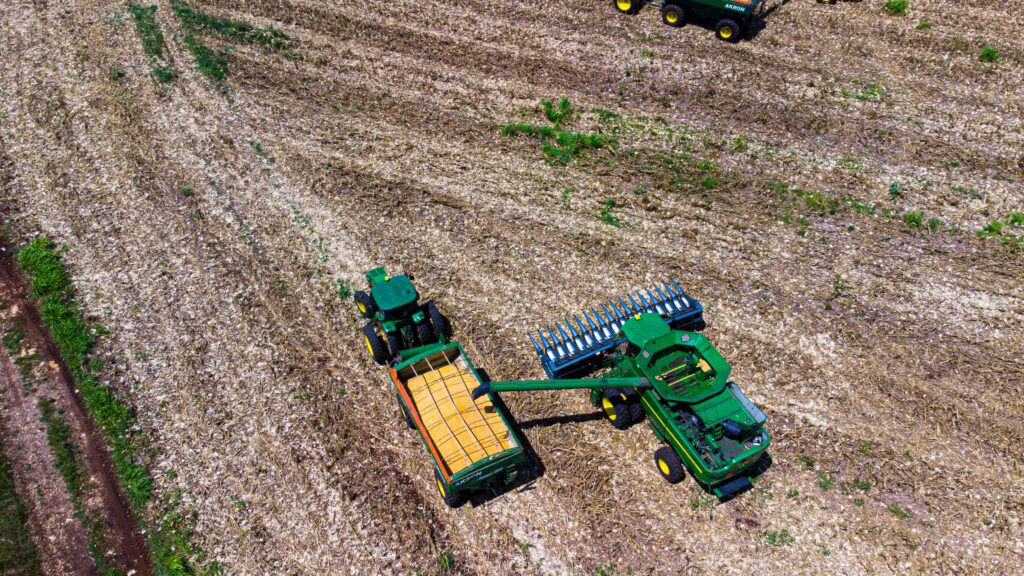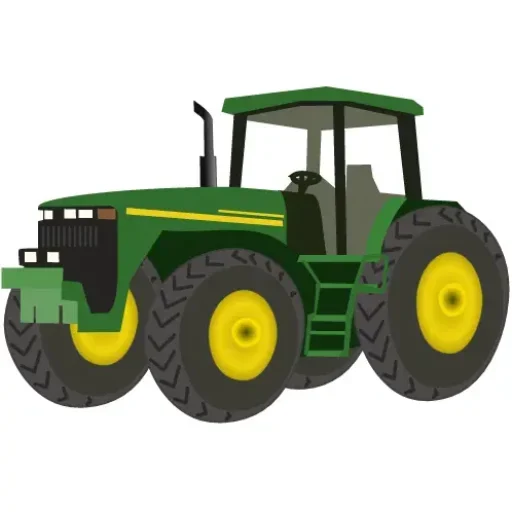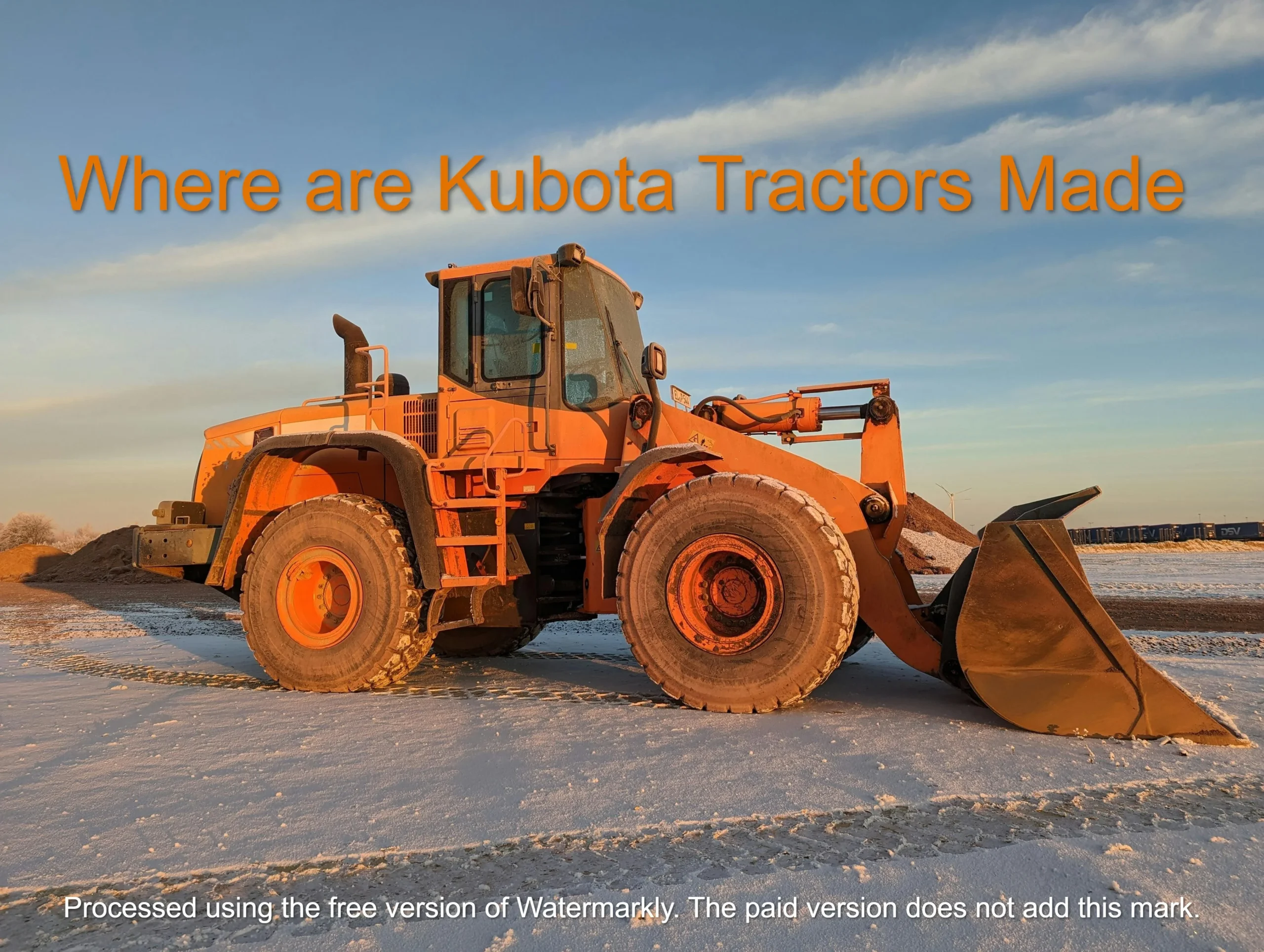Introduction
Kubota tractors have become synonymous with reliability and efficiency in the agricultural industry. As farmers and agricultural enthusiasts seek high-quality equipment, one question often arises: “Where are Kubota tractors made?” In this comprehensive article, we will delve into the global landscape of Kubota Corporation, exploring its manufacturing locations, the impact on product quality, and the broader implications for consumers.
Kubota: A Global Brand
Founded in 1890 in Osaka, Japan, Kubota Corporation has evolved into a global powerhouse in the manufacturing of agricultural equipment. With a rich history and commitment to innovation, Kubota has expanded its reach far beyond its Japanese roots. The company’s presence is now felt in numerous countries, making it a key player on the international stage.
Manufacturing Locations
Kubota’s commitment to quality extends to its manufacturing facilities strategically located around the world. These facilities play a crucial role in producing Kubota tractors, ensuring that each unit meets the company’s rigorous standards. From Japan to the United States and beyond, understanding these manufacturing locations provides valuable insights into the brand’s global footprint.
Quality Assurance and Innovation
Ensuring the quality of Kubota tractors is a top priority for the company. Advanced manufacturing technologies and constant innovation contribute to the durability and performance of Kubota tractors. Examining the correlation between manufacturing locations and quality assurance practices sheds light on Kubota’s dedication to delivering top-notch agricultural machinery.
Global Supply Chain
Kubota’s global supply chain is a well-oiled machine, connecting manufacturing locations with distribution centers and, ultimately, to the end-user. The efficiency of this supply chain is closely tied to the strategic placement of manufacturing facilities. This section will explore how Kubota manages to maintain a seamless and timely flow of products from the factory to the farm.
Community Impact
Beyond producing tractors, Kubota’s manufacturing locations play a significant role in local communities. Job creation, economic contributions, and sustainability initiatives are integral aspects of Kubota’s presence in various regions. This section will shed light on how Kubota becomes an active participant in the communities where its tractors are made.
Consumer Perspectives
What do consumers think about the manufacturing origin of their Kubota tractors? This section will delve into customer satisfaction and feedback, exploring whether the location where a tractor is made influences purchasing decisions. By understanding consumer perspectives, we can gauge the importance of transparency in communicating manufacturing details to the end-user.
Factors Influencing Tractor Production
Manufacturing tractors involves navigating various factors, including environmental considerations, regulatory compliance, and economic variables. This section will analyze how these elements impact Kubota’s decision-making process when selecting manufacturing locations. It highlights the delicate balance between producing high-quality tractors and meeting industry standards.
Navigating the Global Market
In the highly competitive global market, Kubota maintains a competitive edge. This section will explore the strategies Kubota employs to address regional variations, market trends, and challenges. Understanding how the company adapts to different market dynamics is crucial for comprehending its sustained success on a global scale.

Conclusion
In conclusion, the answer to the question “Where are Kubota tractors made?” goes beyond a mere geographical location. It is a journey through Kubota’s rich history, global expansion, commitment to quality, and community impact. Knowing where Kubota tractors are made adds a layer of understanding that enhances the appreciation for the brand and its contributions to agriculture worldwide.
FAQs
- Q: Are Kubota tractors only made in Japan?
- A: No, Kubota tractors are manufactured in various locations worldwide, reflecting the company’s global presence.
- Q: How does Kubota ensure the quality of its tractors?
- A: Kubota employs advanced manufacturing technologies and stringent quality assurance practices at all its manufacturing locations.
- Q: What role do Kubota’s manufacturing locations play in the local communities?
- A: Kubota’s manufacturing locations contribute to job creation, economic development, and sustainability initiatives in their respective communities.
- Q: How does Kubota address environmental concerns in tractor production?
- A: Kubota considers environmental factors in its manufacturing processes, incorporating sustainable practices to minimize the ecological impact.
- Q: Can the manufacturing location of a Kubota tractor influence its market price?
- A: While manufacturing costs may vary, Kubota strives to maintain competitive pricing, considering various factors in the global market.

